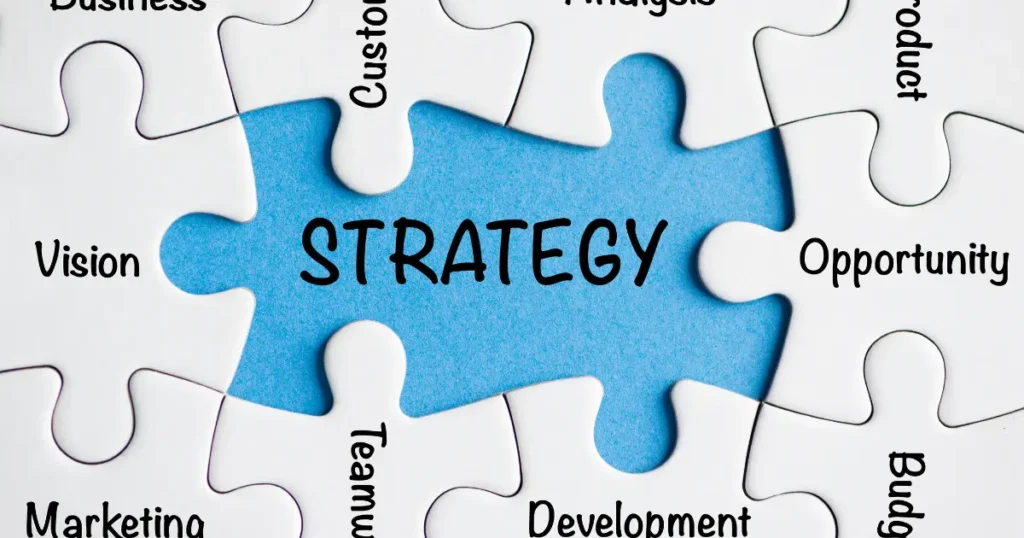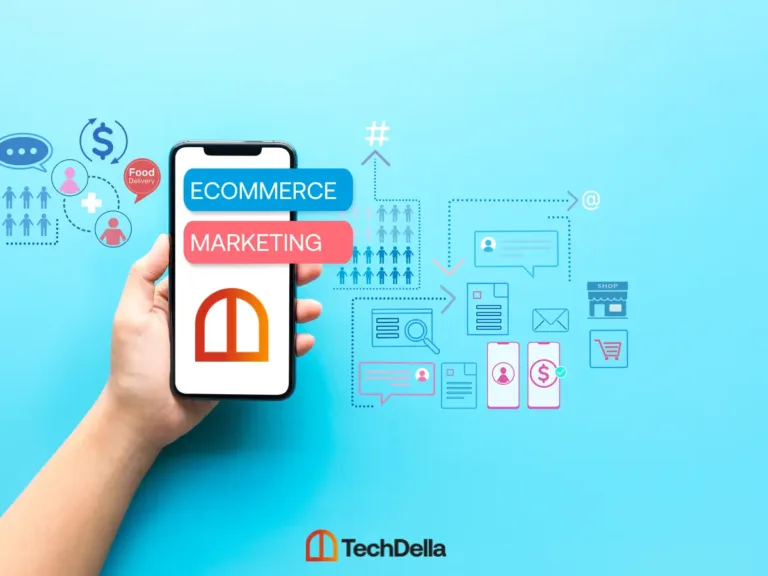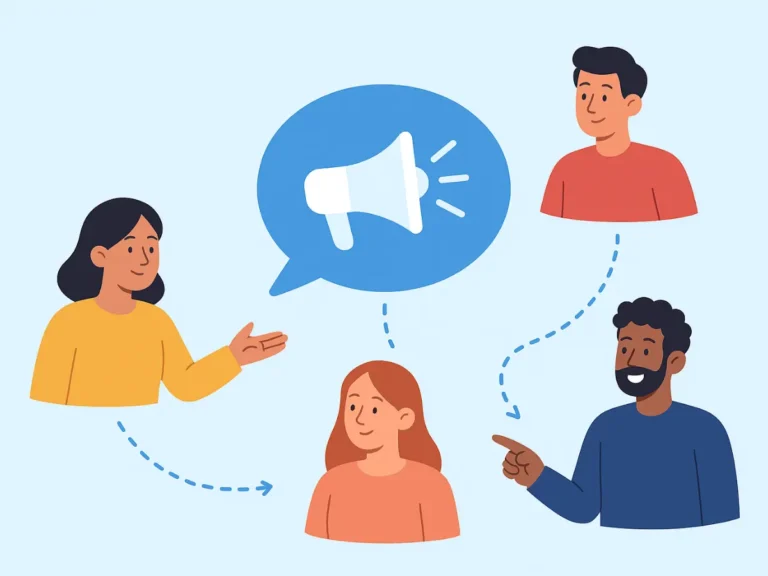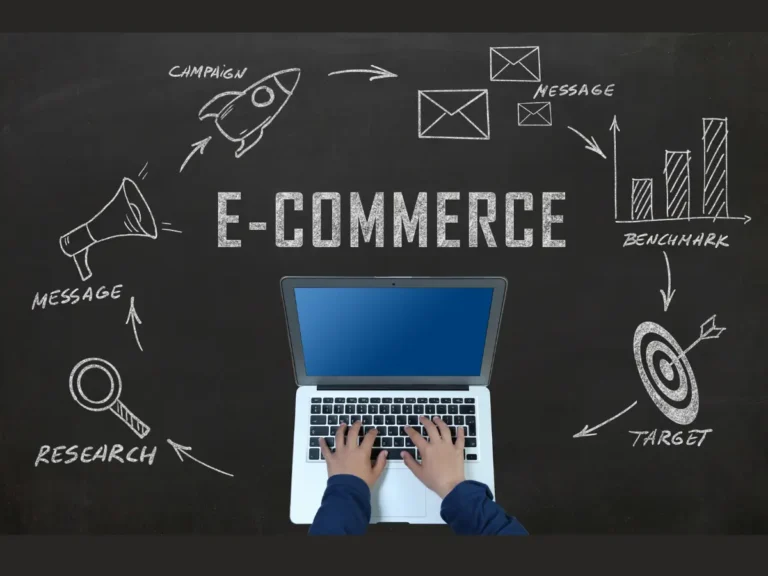
Traditional marketing methods struggle in today’s digital world, and the numbers prove it. Studies show that the average person encounters 4,000 to 10,000 ads per day, yet most go unnoticed. In fact, 86% of viewers skip TV ads, and nearly half of all direct mail is discarded without being read.
Think about it, when was the last time you paid attention to a cold call or clicked on a banner ad?
Businesses are now using more personal, client-focused strategies. This helps attract customers without intruding on them. To understand these strategies, you must understand what Inbound marketing for E-commerce is. Now, take a seat, and let’s get right into it.
Read more about this: See How Techdella Can Transform Your Business
What is Inbound Marketing?
Inbound marketing is about attracting, engaging, and delighting customers without chasing them down. Instead of bombarding people with ads they ignore, it pulls them in naturally with valuable content, helpful insights, and meaningful interactions.
Imagine a customer searching for the perfect product. They come across a well-written blog, a helpful tutorial video, or even an engaging social media post from your brand. Instead of feeling pressured to buy, they feel informed, empowered, and connected. That is the power of inbound marketing: it turns casual visitors into loyal customers by building trust, not just making sales.
What is Inbound Marketing For E-Commerce?
Inbound marketing for e-commerce is all about attracting the right customers. This time, without interrupting them with ads they don’t want. Instead of pushing promotions, it draws shoppers in naturally through valuable content.
Think about it, modern consumers don’t just stumble upon a product and buy it instantly. They research, compare, and look for social proof before making a decision. Inbound marketing helps e-commerce brands meet these needs by providing the right information at the right time.
Businesses can build trust, nurture leads, and drive long-term growth. Inbound Marketing for E-Commerce is done with strategies like SEO, content marketing, social media engagement, and email marketing. And that is unlike cold calling, paid ads, or direct mail, tactics that often feel intrusive.
Shoppers discover your brand organically, engage with helpful content, and develop loyalty because they see value. The result? Stronger customer relationships, higher retention rates, and an edge over competitors.
To succeed in e-commerce today, brands must go beyond just selling products. They need to establish themselves as trusted industry authorities by consistently sharing insights, product recommendations, and expert content.
With inbound marketing, your business does not just chase customers, it becomes a go-to source they seek out and rely on. Now that you understand how inbound marketing works for e-commerce, let’s explore why it is essential for success.
Click here to read more about Schedule an SEO and Website Audit
Why is Inbound Marketing Important for E-Commerce Success?
Inbound marketing is not just a trend, it is a game-changer for e-commerce brands looking to scale. Here is why it is essential for your online business:

- Cost-effective marketing
- Encourages Trust and Authority
- Enhances customer retention
- Attracts quality visitors
- Improves customer experience
1. Cost-Effective and Sustainable Growth
Paid ads can bring quick results, but they stop working the moment you stop paying. Inbound marketing, on the other hand, builds a long-lasting foundation. And, this is through SEO, content marketing, and organic social media. These strategies generate consistent traffic over time, reducing the need for costly ad campaigns.
2. Builds Trust and Authority
Today’s consumers don’t just buy from brands, they buy from brands they trust. Inbound marketing positions your business as an industry expert. This is by providing valuable content, answering customer questions, and offering insightful product recommendations. When you educate rather than sell, customers see you as a reliable source. And, this makes them more likely to choose you over competitors.
3. Enhances Customer Retention
Attracting new customers is great, but keeping them is even better. Inbound marketing strengthens relationships through personalized email campaigns, post-purchase follow-ups, and valuable content. When customers feel valued and engaged, they return to your store, increasing their lifetime value and driving repeat sales.
4. Attracts High-Quality Traffic
Not all website visitors are potential buyers. Inbound marketing targets people actively searching for your products through SEO, lead magnets, and social media engagement. This means more of your visitors are ready to buy, leading to higher conversion rates compared to traditional ads.
5. Improves Customer Experience
A seamless shopping experience makes all the difference. Inbound marketing helps e-commerce brands guide customers through every stage of their journey. This is from product discovery to purchase and even beyond.
A frictionless path to conversion can be created. And, this is with engaging content, personalized recommendations, and a well-structured e-commerce funnel.
We have seen why inbound marketing matters, but how do you apply it effectively? Let’s explore proven strategies to attract, engage, and convert customers for lasting e-commerce success.
Core Strategies for Inbound Marketing for E-Commerce
To grow an online store, you need smart inbound marketing strategies that attract customers. These strategies help businesses draw in buyers, keep them engaged, and build loyalty. Let’s explore the key strategies for inbound marketing success.

1. SEO for Online Businesses
Search Engine Optimization (SEO) boosts visibility and helps stores rank higher on search engines. Strong SEO strategies drive organic traffic and increase conversions over time. Here’s how to optimize your e-commerce site effectively:
- Keyword Optimization: Use relevant keywords in product descriptions, blogs, and meta tags for visibility.
- On-Page SEO: Optimize title tags, meta descriptions, images, and internal links for better rankings.
- Technical SEO: Ensure a fast, mobile-friendly website with structured data for better search visibility.
- Backlink Building: Secure links from authoritative sites to improve credibility and search engine trust.
- Content Optimization: Regularly update blog posts, product guides, and landing pages for accuracy.
You can read more about How to Boost Your Search Rankings with Our SEO Services
2. E-Commerce Content Marketing
Content marketing educates customers, builds trust, and drives conversions through valuable information. High-quality content positions brands as industry experts and attracts ideal customers. Here are effective content marketing strategies:
- Blog Posts & Guides: Create product comparisons, how-to guides, and industry insights to educate shoppers.
- Product Tutorials & Videos: Showcase product features and demonstrate real-life use cases effectively.
- Infographics: Present complex topics in visually appealing, easy-to-understand graphics.
- Case Studies & Testimonials: Use real success stories to build credibility and customer confidence.
- Interactive Content: Engage users with quizzes, calculators, surveys, and polls for personalized experiences.
Read more about How to Get a Content Strategy That Converts
3. Social Media Marketing for Online Stores
Social media platforms provide businesses with a way to connect and engage with customers. A strong strategy builds brand awareness, increases traffic, and boosts sales. Key social media strategies include:
- Platform Selection: Focus on Instagram, Facebook, and TikTok, where your audience is most active.
- Content Strategy: Share product highlights, behind-the-scenes stories, and user-generated content.
- Influencer Marketing: Partner with influencers to expand reach and build audience trust.
- Community Engagement: Reply to comments, messages, and reviews to strengthen brand relationships.
- Social Commerce: Sell products directly through Instagram Shopping, Facebook Shops, and TikTok Shopping.
4. E-Commerce Email Marketing Strategies
Email marketing is one of the best tools for nurturing leads and increasing sales. A well-crafted email campaign keeps customers engaged and boosts retention. Here are some winning strategies:
- Abandoned Cart Reminders: Send automated emails encouraging customers to complete their purchases.
- Welcome Series: Offer discounts or personalized messages to onboard and convert new subscribers.
- Post-Purchase Follow-Ups: Thank customers, offer maintenance tips, and suggest related products.
- Re-engagement Campaigns: Reach out to inactive subscribers with exclusive deals or personalized recommendations.
5. Lead Generation for E-Commerce
Capturing quality leads is crucial for growing and sustaining a successful e-commerce business. Effective lead-generation strategies drive conversions and long-term customer relationships. Here are the key methods:
- Lead Magnets: Offer free ebooks, discounts, or exclusive content in exchange for emails.
- Exit-Intent Popups: Display special offers when users attempt to leave your website.
- Spin-to-Win Promotions: Gamify lead generation with discount or prize-based pop-ups.
- Chatbots & Live Chat: Engage website visitors in real-time and collect valuable customer information.
- Referral Programs: Reward existing customers for bringing in new buyers through referrals.
6. Customer Retention Strategies for Online Stores
Attracting new customers is important, but retaining existing ones ensures long-term profitability. Strong retention strategies increase lifetime value and customer satisfaction. Here’s how to keep buyers coming back:
- Loyalty Programs: Reward repeat customers with points, discounts, and exclusive offers.
- Personalized Offers: Use customer data to suggest relevant products and exclusive discounts.
- Subscription Models: Offer monthly or annual subscriptions to generate steady, recurring revenue.
- Excellent Customer Service: Provide fast support via live chat, email, and social media.
- Post-Purchase Engagement: Send thank-you emails, request reviews, and re-engage customers with offers.
Conclusion
Inbound marketing fuels e-commerce growth by attracting, converting, and retaining highly engaged customers. It builds trust through valuable content, SEO, social media, and personalized marketing strategies.
However, success demands expertise, consistency, and a well-executed inbound marketing strategy. That’s where Techdella comes in. We help your business thrive and scale effectively. Whether it’s SEO, content, social media, or email marketing, we have got you covered.
Related Marketing Strategies

50 Top eCommerce Marketing Tools for Success in 2025

What is Referral Marketing? All You Must Know


